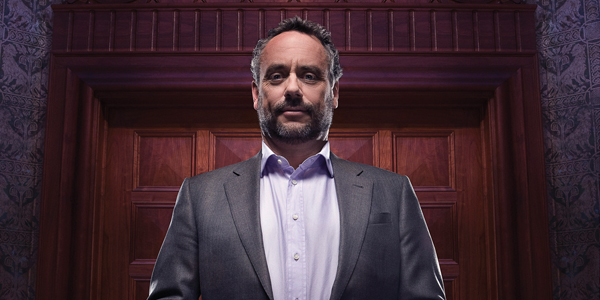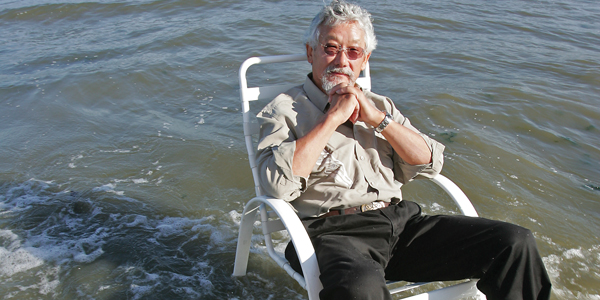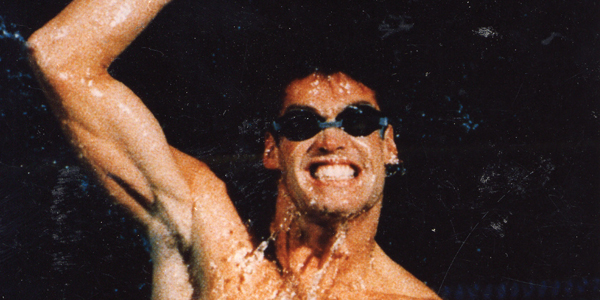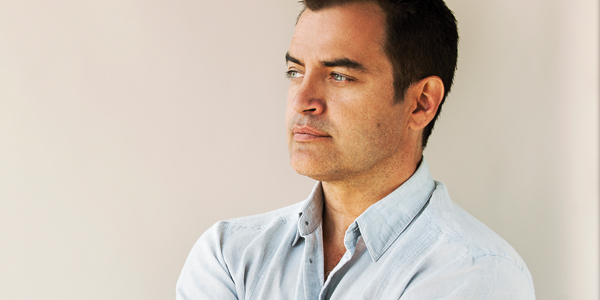The first question I wanted to ask you is whether or not you remember the moment that you began to dream about a website that would give free access to knowledge available at the speed of news? Can you remember when that came to be? Was it driving? In the shower? When did it culminate in your mind?
I do remember the time I was sitting at my computer, but I don’t have a lively story around this. I had been watching the growth of free software over time and realized that people were collaborating in new ways and, because the collaboration was being done mostly by programmers, they would need tools. I realized that collaboration in general could happen far beyond that; that it could extend into all kinds of cultural products. That was the earliest inkling of what I wanted to do.
Why does it continue to be an important calling for you? You and I both know that unless passion exists, it stops surviving.
Once I had the concept of a free encyclopaedia for every single person on the planet in their own language, it really just gripped me that we have the technology to do this, the people to do this, that somebody needs to organize it and make it happen. That was my calling to it and it was strong and is still quite strong today. Although it’s very huge around the world, I’m still very fixed on that global mission and working toward how to extend the success we have in English and all of the European languages, and Chinese, Japanese. How do we extend it into the languages of Africa and India and so forth? I still remain very passionate about that mission!
I read that you attended a private educational establishment founded by your mother and grandmother called House of Learning. Was your own view of learning shaped by this experience?
I had all these cool kids in my class first grade to eighth grade and we were grouped together basically into two rooms; first through fourth grade, and fifth through eighth grade; and the teacher was fantastic in each group and we were allowed to go ahead in subjects we were interested in and so on and so forth. It was a very flexible educational environment and it allowed a lot of freedom to follow our interests. That’s where I got my love for the encyclopaedia and general learning and the love of all inquiry.
And, thinking back now to your mother and grandmother, they were certainly entrepreneurial in their own right to challenge the status quo of what was being offered. Do you look back now and think how remarkable that was?
No question, and in fact, my entire family is entrepreneurial because my uncle, early on, had a music store and one of the first computer stores and I worked there when I was a teenager. And then my mother went back to school and became a pharmacist and she and my father opened a pharmacy. It’s always been a part of my family that we’re starting things.
What do you think it is that your parents showed you or demonstrated through the way they lived that you’ve taken with you?
It’s that you can start something. It’s as simple as that. That you don’t have to have a normal job, you can go try something else and everything will more or less work out in the end.
How did the public and the media initially respond to the idea that quality content could still be manufactured without credentials and central control? Because again, that’s against the status quo of having to have the academic background to be an expert in order to offer up knowledge. So I’m wondering how was it initially received, and how is it received now?
I think we’re still grappling with it, all of us. We received some favorable early mention and some negative early mention and today we get favorable mention and negative mention. I’m not sure things have changed all that much. I would say that, over time, people have come to a realization that it’s possible for people to come together and work thoughtfully and create something of quality with new structures. It’s not that there isn’t structure, It’s that it’s new structure, it’s not that there aren’t credentials, it’s that there’s a more realistic respect of what credentials mean and how to figure out if something is valid or not. I think that we’re still at the end of that process.
You’ve empowered unpaid and unidentified volunteers to believe in your dream and, in doing that, you’ve created one of the top 50 websites in the world. How do you think you did that? What does it come down to?
Well, I’m a a really friendly person. I come from Alabama where I always have a smile for people and say, “Hi folks!” I’m human, so I don’t always live up to that, but mostly I do. I think that’s been really important. I think people think about stories related to the Internet as technology stories and all too often it’s not about technology. It’s really about people and it’s about finding ways for people to have fun while they’re doing what they’re interested in.
You’re right, when you peel away all the layers, it is about people. Has it all surpassed your dream? Has it increased at the speed of light and you never thought in your wildest dreams it would be what it is today? Or did you have that vision initially and it would just be a matter of time?
Well, I was very optimistic from the early times; this was a big idea and could become quite big. I remember looking at a list of the top 100 websites at the time. An encyclopaedia reference was listed in the top 150. I thought if we did a really good job we could be in the top 100, maybe the top 50. Now, we’re competing with the fifth most popular website in the world and we’ve absolutely surpassed where I thought we were going to go. It’s really an amazing change that in nine years we’ve managed to build a global brand name that’s known all over the world with a marketing budget of basically zero. I think that has some implications for all kinds of programs like the Internet. That word of mouth is incredibly powerful. If you have passionate fans, you can make a huge difference. I think we’re just now beginning to see a few brands take awareness of that, but not enough yet.
Going back to the idea of people being at the base, the foundation of everything, I understand that in 2004 you set out to meet as many Wikipedians as you could. What was the experience like? Obviously passionate people who cared about spreading knowledge came on board to create Wikipedia, so when you actually met them, what was that like?
It’s been really interesting. I travel all over the world and meet Wikipedians all the time. I guess one of the main things I’ve learned from it is that people are basically the same everywhere. We can talk about cultural differences around the world but there’s a certain spirit of helpfulness and a certain “geek culture” that transcends national culture. People really do care about the same things everywhere.
What is the most gratifying thing when you meet people? Is there one thing, or is it always different?
It’s always different. I get the chance to meet with all kinds of people; from very active Wikipedians and large languages, to the small languages, to new users who had never added to Wikipedia and they comment that it’s changed their life in a small way. There’s always something new and exciting about all of that.
Your leadership organized and basically inspired a community to create. How would you describe your leadership style?
Very laid back. I’m not an authoritarian leader. When you’re talking about an all-world community, you can’t tell people what to do. You have to find out what it is they want to do and allow them to do that. The main thing is not authoritarian.
What were some of your mantras in the early days?
“Mantras” is kind of a strange word for me. But the idea that if there’s something on the website, some kind of controversy or something you disagree with, you shouldn’t assume the person entering it is being evil. You should just assume they’re trying to do something helpful and you just haven’t figured out what it is yet. That’s a very helpful thing, because it turns out it’s true. Not many people really come to Wikipedia trying to cause trouble or destruct things but they may misunderstand or you may misunderstand what they’re trying to do. It’s important to give effort to figuring out what’s really going on and how it can be made better.
Can you imagine if we extended that philosophy to all business? If we all came to the table and assumed that everyone is doing the best they can, that there really is no evil intent! Can you imagine how our world would be functioning right now?
Ya, that would be huge, no question about it.
I wonder if we’ll get there… I understand the only non-negotiable policy you insist on has to do with having “a neutral point of view”. Can you tell me what you mean by this?
Well the idea here is that Wikipedia itself should not take a stand on any controversial issue and this has been very powerful in helping people of different perspectives to work together. Most people understand that quite well – they agree with it and support it. Even if you may have a strong perspective on a particular issue, you have acknowledged that Wikipedia doesn’t take your perspective but will describe it, and describe clearly other points of view. That’s really been quite clear and effective from the onset, the idea that Wikipedia shouldn’t be advocating for something. It should really remain neutral.
I’m wondering if you can describe the archetypal submitter for Wikipedia. What drives them? Can you give me a snapshot?
There are all kinds of different people for all kinds of different reasons. It’s really difficult. For the most part, Wikipedians don’t compare to, say, bloggers. Bloggers have more of a tendency to want to put forth their opinions and perspectives and have it recognized as such. Wikipedians tend to be more collaborative. They basically work to find ways to simply put the information down, and work well with others. It’s a very different personality type.
What have you learned about yourself on this whole Wikipedia journey?
I’ve learned lots of things. I guess I travel all over the world all the time so that has given me a unique perspective on the world and all kinds of things, culture and so forth. A part of that is learning about yourself; how little you know about the world.
And how your perspective comes from that… I’m guessing your perspective has changed enormously?
Yes, in a sense.
You’ve mentioned the importance of “love” in several interviews I’ve read so I’d like you to talk to me about “love”. It’s not a term that’s generally spoken in tech circles! What is it about “love” that you think drives people? What about it can be incorporated into business?
When you think about people coming together to do something like Wikipedia, it can have a technocratic feel. You really have to love it, you have to have a passion to get it right and make something beautiful. You tend to get bogged down in details and lose perspective that we’re trying to do something humanitarian for the world that has a positive effect on people’s real lives. We’re not just goofing around on a website. I think that’s really the key. It can be key in all kinds of aspects of our lives. Some things can be quite mundane and it’s important to think about what people are doing. It’s good to remember, “my work here is productive and I should do it as well as I possibly can”.
What advice would you give to others who have a passion to create a product or a service that’s never been imagined before?
Just try stuff! That’s what I did and I think it’s very important. Do small experiments that don’t cost you that much. Don’t be afraid to try things. Too often people are waiting and thinking and trying to come up with the perfect scenario before they do anything and I think that’s a mistake. You’ll never have the perfect scenario. That’s just the lucky nature of life.






